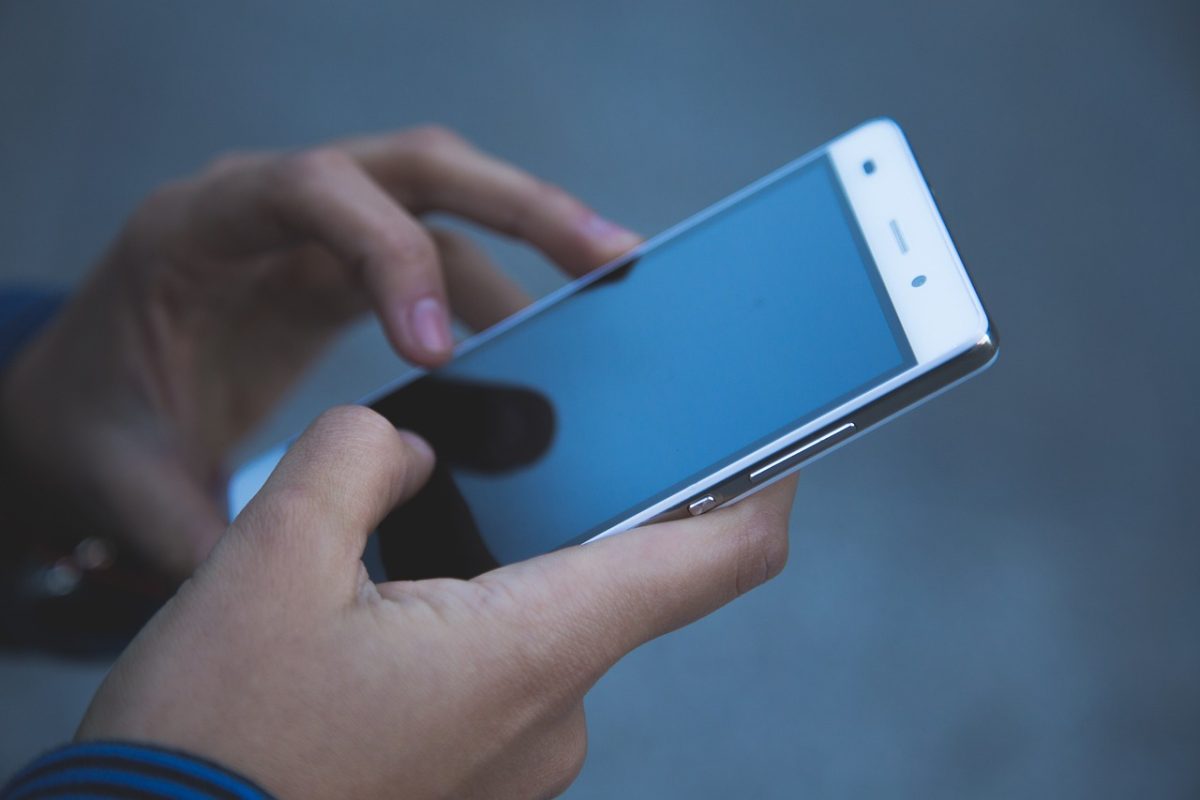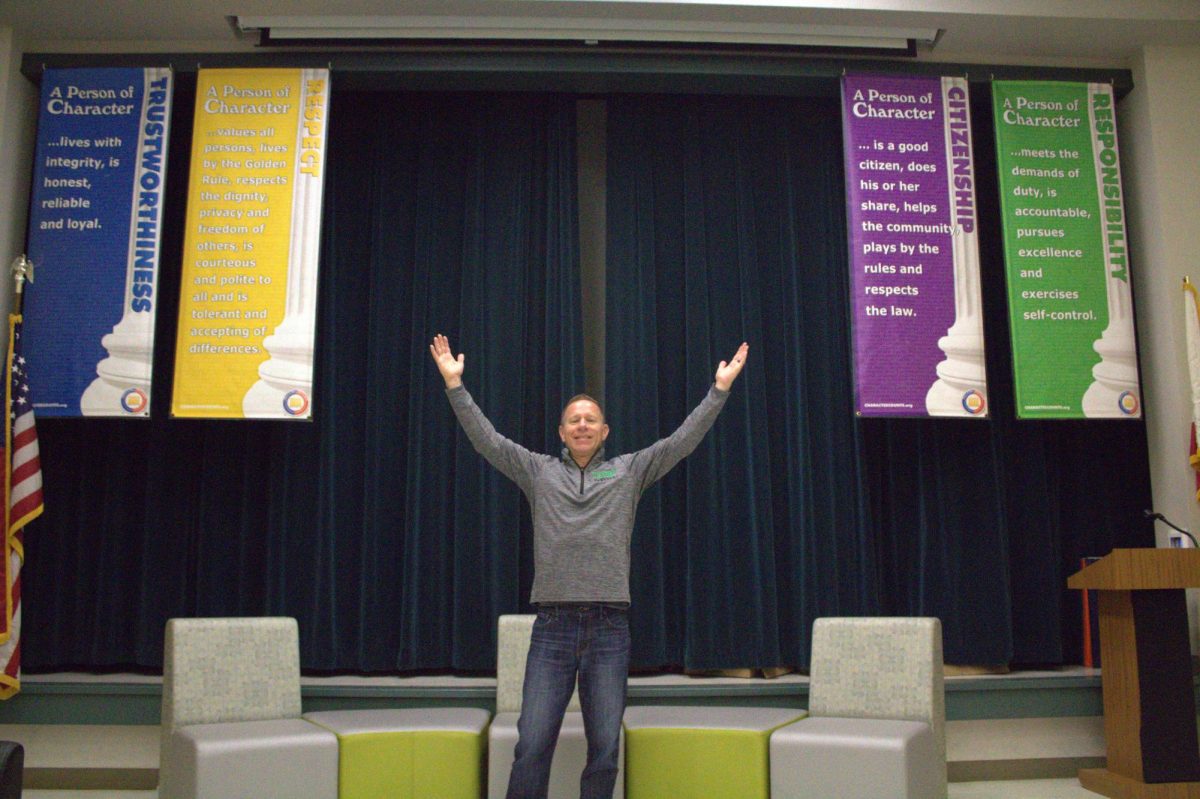Unfortunately, phone addiction has become a prominent issue in our generation. But have you ever thought about why we are so addicted to our phones? How do we stay up till 3 in the morning just scrolling without being aware of the time? Oftentimes, especially during the weekend we stay up during the night in an attempt to delay the inevitable return to school on Monday. You’re probably thinking, “It’s not a big deal that I spend 4 hours on my phone. I’m just in high school. I won’t be like this when I become an adult.” However, that’s where you might be wrong. Being addicted now almost always ensures that you will be addicted in the future. The longer you are addicted to your phone the harder it will be to break this habit in the long run. Additionally, phone addiction is a relatively new issue and therefore has not been studied in a long term study. Consequently, the potential long-term consequences, such as future medical ailments linked to phone addiction, remain largely unknown. Even if your phone is in the vicinity of your workspace, it affects your attention span and makes you think, “What if I just scroll for 10 minutes? I really need a break.” If you are extremely addicted chances are time will fly, 10 minutes will turn into 1 hour which then turns into 3 hours and before you know it’s midnight. If you are having a really hard time focusing on your work and keep getting distracted, research indicates that in most cases the reason is our phone. Our attention span has significantly decreased over generations to the point that even a goldfish has a longer attention span than us. We always hear our parents saying go out, take a walk, or have a face to face conversation. But have you ever taken them seriously? While it may not seem like a big deal, this addiction can have many negative effects. Therefore it is very important to regulate phone usage in a way that benefits us.
AP Psychology teacher Mr. Sturgeon offers a neuroscientific perspective on why we are so addicted to our phones explaining that, “activities like scrolling through social media, receiving notifications, or even the act of unlocking your phone can trigger the release of dopamine, a neurotransmitter associated with pleasure and reward.” Furthermore, he adds that, “engineers and psychologists use principles of behavioral psychology to design features that capture our attention and keep us engaged. For example, the “infinite scroll on social media, the “like” buttons, and even the pull-to-refresh mechanism are all designed to provide variable rewards, much like a slot machine.” We have to understand that, “The goal for these companies is to monetize this engagement through various channels, be it advertising, in-app purchases, or data collection. The more time you spend on their platform, the more valuable you become as a user in economic terms.”
Companies don’t care about our mental health and the fact that depression rates are significantly increasing over time is not a coincidence, all they care about is how can this person benefit me? How do I make more money? After all, social media is business. Therefore, we shouldn’t invest our time in something that is designed to exploit psychological triggers and addictive tendencies often exacerbating feelings of inadequacy and fear of missing out. Instead, we should invest in ourselves in our mental health, so we can be happier and healthier in the long run.
Mr. Sturgeon elaborates on the negative effects of phone addiction by illustrating that it, “can lead to decreased productivity, disrupted sleep/circadian rhythm, and even strained interpersonal relationships.” Also, research indicates that sleep plays a huge role in memory consolidation and muscle recovery. So if you are an athlete or someone who wants to ace your exam, instead of scrolling through your phone past midnight, you should prioritize your health and put your phone down in order to achieve optimal performance.
Social media and phone addiction can also lead to FOMO which Mr. Sturgeon explains as a, “form of social anxiety that can prompt people to continuously check their phones for updates or to engage in activities they might not otherwise do out of fear of exclusion.” “Smartphones and social media platforms are particularly adept at triggering FOMO. Firstly, the immediacy and constant availability of updates mean that people are continually reminded of what everyone else is doing. The design of social media platforms often emphasizes highlighting reels of people’s lives, showcasing their achievements, social gatherings, or exciting experiences, giving viewers the feeling that they are missing out on something significant. Secondly, social media algorithms are designed to show content that will engage users the most, often content that invokes strong emotional responses – including FOMO. Features like “Stories” on platforms like Instagram and Facebook are time-sensitive, creating a sense of urgency and scarcity. You have to ‘see it now, or miss it forever,’ intensifying feelings of FOMO. Lastly, the interactive nature of these platforms – comments, likes, shares – provides real-time social validation that people might fear missing out on. The feedback loop is similar to other forms of social interaction, where our brains seek validation and social inclusion, further embedding the habit of regularly checking our phones for updates. The consequence is that FOMO can become a self-perpetuating cycle: the more you engage with your phone and social media to mitigate feelings of musing out, the more those platforms will provide content that triggers FOMO, and so the cycle continues.”
RHS Junior Mateo claims that social media, especially if you make content it might cause you to be stressed or, “worried if your self sense of self esteem is connected to whatever you’re putting out in public.”
RHS Junior Orlando elaborated that something might look, “like pretty fun on Instagram. But then it’s like most of it’s just fabricated, right? Like people will go to Disneyland, but then just spend half of the time just taking photos.”
Although phone addiction has a plethora of negative effects, there are also some positive effects depending on how and what we use it for. For example, Ms. Padilla’s most used app is TikTok but she doesn’t use it to follow dance trends instead she appreciates, “the specialists like the epidemiologists and political people” that she follows. On the other hand, Mr. Sturgeon’s most used apps are Schoology and Gmail to, “help keep track of student progress, plan lessons, and communicate with colleagues and parents.” Like Ms. Padilla we can learn to use social media for learning purposes or we can totally restrict the use of social media if we get too addicted and just use it when we really need it, like Mr. Sturgeon who uses it to stay on track as a teacher. Depending on the level of our addiction, we should either choose to totally cut out social media or employ screen time limits and use it for educational purposes. Phones are a tool that we can make many different uses of, but in the end it is our choice of how we want it to affect us.
Ms. Padilla claims that in high school, “there’s a want to form an identity, find ourselves, and our place” and that “it is a lovely place to make connections and be in a community”. Mr. Sturgeon adds that “smartphones offer unparalleled convenience..it streamlines tasks like taking attendance, note-taking, and school communication, making me more efficient in my role as a teacher.”
While we all have our reasons for scrolling on our phones such as finding your identity, escaping from your reality, or just having too much free time. I cannot emphasize the importance of investing in yourself and your mental health by reducing your screen time. It is understandable to take a break if you have been working for an hour or so, however you should make it a point to take a more productive break that will actually give your brain rest and stimulate your focus when you return. Some activities that can boost our focus include exercise, sleep, being in nature, meditation, etc. If this article has somehow inspired you to decrease your screen time, one thing that I would not recommend is to completely go from 4 hours to 0, instead slowly decrease it. Even if you go home today and decrease your screen time by 10 minutes I will have accomplished my purpose.








